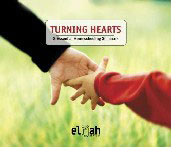
E-journal September 26, 2006 |
Kindergarten? (This article is a response I wrote to a friend who asked me what educational activities he could do with his son on the 30 minute drive to and from kindergarten each day. ) I've thought a lot about what you asked me about something to do in the car with Gabriel that would be educational on his way to kindergarten and back each day. Since it’s been a long time since I’ve done kindergarten with any of my kids, I looked around for what’s out there that would be helpful. Here’s what I came up with. It’s probably not what you want to hear. I am not a huge fan of structured early learning for young children. My philosophy is that children have an innate curiosity about the world and love of learning and the surest way to kill that is to turn it into “school.” So I’m probably not the person you need to ask about structured learning experiences for a 5 year old. In fact, there are many studies that show that young children who are given nurturing environments, rich in opportunities for self-directed learning and everyday opportunities to do “real math,” and who have parents read to them often, naturally acquire much of what they would learn in K through 2nd grade. When they do get around to formal learning, they tend to be able to absorb it all very quickly and make up for lost time. I found that to be the case with my children, two of whom didn't even learn to read until they were 9 because they just weren't interested. But once they were, they learned at an astonishing rate. Having said all that, here are my recommendations. Resources to look into The first is Endangered Minds by Jane Healey. The thesis of the book is that today’s children are poorly equipped to learn in school because they haven’t developed the neural pathways necessary for the kind of thinking needed for formal learning. Why? The learning required by schooling requires a kind of thinking that modern kids just don’t develop because they are seldom in contexts where they see adults model that thinking or where they themselves are required to do it. The second book is Dreamers, Discovers, and Dynamos. I have a feeling the reason you called me is that Gabe is a little “dynamo.” This book will help you understand how he thinks and how he can be best helped. The next resource I recommend is a test you can take for your child to pinpoint his or her particular “learning style.” It's called A Self Portrait and it helps you the parent discover how your child learns best and what you can do to assist in the process. The third book is Emotional Intelligence. Did you know that people with the highest standardized test scores are often the least likely to be happy and successful in life? They know how to “crack the system” when it comes to getting good grades in an artificially contrived environment such as school, but they lack the internal resilience to tackle the tough issues of life. This book discusses what constitutes the internal resilience characteristic of people who not only survive, but thrive. The final book is The DaVinci Method. I have a feeling that you, Alex, are a DaVinci child and this book will not only give you some insight into yourself, but also into what’s best for your children. The reason I want you to read these books is that once you do, you will start restructuring your lifestyle to provide your children with modeling and experiences that will help them in school or in whatever they do. Really, that’s all you need to do with a child—create an environment where learning and thinking can thrive. The rest of education is just details. SECOND, I would recommend something you already have—a love of learning. But, because you are already so oriented toward learning, it may be difficult for you to refrain from “pushing” that on your kids. The quickest way to kill a child’s innate curiosity about the world is to institutionalize it. And you can institutionalize it at home as easily as you can in an actual institution. How? By making it into a “have to” or a “should” or making it a "naming" and "labeling" exercise and taking all the wonder and fun out of it. Looking at a butterfly as an object of study to help you fill out some worksheets so you can pass a science course is a whole different experience from looking at a butterfly with the awe and wonder of what a miracle a butterfly is. Focus on relationship THIRD, I would recommend that you focus on developing relationships with your children above all else. When it comes to education, my hierarchy of priorities are relationships first, life skills second, and academics last. When it’s all said and done, it’s our relationships and ability to navigate the ups and downs of life that are the truly “bottom line” priorities and provide the foundation that all information (academics) is built on. For example, right now I am working with one of the smartest, most highly educated young men on the planet, but he is so lacking in social skills and the character qualities of time management, ability to stay on task, and commitment to doing a job with excellence that all his academic kudos are practically worthless. He leads a life of continual emotional turmoil because he is always getting crosswise with people and situations. So, here’s what I would do on that thirty minute drive each way to kindergarten. I’d get me a bunch of songs CDs that my children liked (like the Wee Sing series) and I’d sing, sing, sing. I’d play games like “I Spy” or “20 Questions.” I’d tell him stories about my childhood when I was about his age and what life was like then and how I felt and what I learned (but not be too “teachy” about it). I’d make up stories about him. My kids used to love for me to make up stories about them going back in time and doing some daring deed or meeting some famous person. In short, I would try to make driving to school the happiest, most fun part of his day. Then on the way home I would help him “detox” from the assault on his nervous system of being in a room with a dozen five year olds all morning. I would get an emotional reading and help him get over any emotional “boo-boos” that may have happened. (Personally, I don’t think you can put a bunch of 5 year olds together without winding up with emotional “boo-boos.”) And I wouldn’t do the “toughen up and take it like a man” routine. I’d find out what was really bothering him or what really hurt and I’d be understanding and encouraging, not want him to be someone he isn’t. I’d run through McDonald’s or somewhere and get him a snack and make it a fun outing. I’d try to generally make him feel that he’s the most wonderful boy in the world and I am so glad to be spending that driving time with him. And I’d make sure I was really “there” when I did this. Every one of us has a “not-here" self that we retreat into, and fathers are the worst about being home but not really “being home.” They are there without “being there,” so they don't offer any real human connection—it’s just one pattern of thinking relating to another pattern of thinking. So that’s all the advice I’ve got to give. I’m sorry for writing an essay, but I hope this helps. Hoping to see you again soon, Ellyn If you haven't had a chance yet to tell me what home schooling means to you, please GO HERE NOW. It will just take you a few minutes and your input is invaluable to me. Thanks! WHAT HOME SCHOOLING
I Saw the Angel in the Marble
This book represents the best of 15 years of Elijah Company articles. Find our more HERE>> Turning Hearts: Davis Seminar Set (8 CDs)
|
SALE PRODUCTS!
Limited Quantities
Be sure to sign up for our ejournal! Sign up below. |







